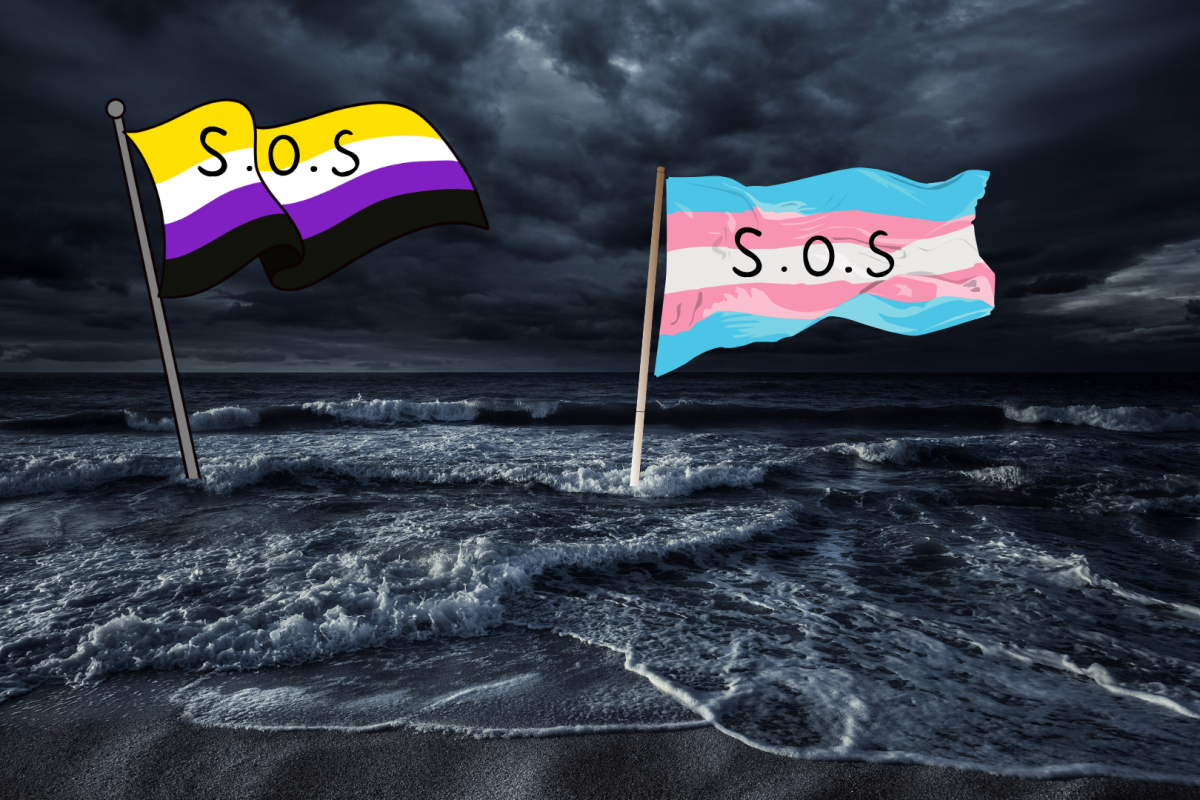The Democratic Party was thoroughly trounced in the November 5 elections losing first the presidency, then the Senate, and most recently the House, to the Republican Party. The occasion opened the floodgates for criticisms of Democrats, the sum of which appears to be that they are out-of-touch and unhelpful.
According to New York Times columnist Maureen Dowd, this is true—and also, they were too close to transgender people.
To hear her tell it, this election showed the party that “mothers care both about abortion rights and having their daughters compete fairly and safely on the playing field,” an implicit stab at transgender female athletes. She quotes Seth Moulton, a Democratic House member from Massachusetts, who said he was “supposed to be afraid” to complain about that very topic. Dowd has been joined by Pamela Paul, who claims that Democrats were weakened by their insistence on allowing gender-affirming care for minors.
It may certainly be that Democrats have an elitism problem. But that is not the fault of trans and nonbinary people, and now is no time to turn on them.
No Democratic allies who won reelection have spoken of any issues arising from genderqueer folks. Vermont Senator Bernie Sanders put the party’s losses down to having “abandoned…the middle class.” New York Rep. Alexandria Ocasio-Cortez discovered that a sizable number of her supporters had actually voted for Donald Trump as president, but for her in Congress—according to her, because they were more convinced that Trump would look out for them.
Meanwhile, Delaware State Senator Sarah McBride was just elected the first openly trans member of Congress, and she views her identity, if anything, as an advantage.
Indeed, ending support for genderqueer rights would pose no real help to Democrats. Presently, 25,452,400 Americans identify as LGBTQ+. 12.5% of those folks identify as trans. Moreover, in the last election, 86% of LGBTQ+ voters went Democrat. If we assume that the proportions are the same, then abandoning the trans community could result in the party losing as many as 2,736,133 votes. That is not the kind of support a weakened party wants to throw out.
What’s more, for trans people, this is the worst possible time to have prior supporters turning their backs. President-elect Donald Trump has said that he would request that Congress adopt a policy of officially acknowledging only cisgender male and female identities. Meanwhile, the Supreme Court is soon set to hear arguments in US v Skrmetti, a court case that could pave the way for future bans on gender-affirming healthcare.
Being trans or nonbinary right now is just plain scary—including for students right here at Niles North.
Olivia Russell, a nonbinary senior, recalled that on the morning after election day, the first thing they did was cry in their mother’s arms. “I don’t think there will be a point in these next four years that I’m not scared,” they said.
“I remember talking to [my girlfriend], being like, ‘Man, are they gonna take me away from my parents or something? Or put my parents in jail?” said one anonymous trans student. “What if they take my parents away, or what if I get jumped or stuff?”
Andrea Olivares Garcia, a senior who uses they/she pronouns, described a “sudden jolt of fear and sadness” after Trump’s victory. “I remember waking up and just being like, ‘How? How did we allow this to happen?’”
Olivares described how later, “that translated to anger” on behalf of their classmates, as they saw how distraught numerous younger students and queer acquaintances were. “At that point forward, I just felt angry. Like, how are we allowing these people to suffer?”
The good news is that gender-diverse people still have some allies in this party. Illinois Governor JB Pritzker stated in a tweet that queer people could find safety in this state. Even more locally, Josina Morita, committeeperson for Niles Township Democrats United, said in an interview that it is “reductive” to attribute the party’s losses to support for trans people.
“I believe that the Democratic Party is a party of inclusion for everybody, and I think that’s something that we all need to step up to in this moment right now,” Morita said.
In short, Democrats, as a whole, simply cannot—practically or morally—fail to aid trans and nonbinary people right now.
“I hope they still do the right thing,” said Bridget Israelite, a sophomore who uses she/they pronouns, “because that’s the only way that this country, at least, will feel safe to me in the future.”
A note to readers: this article originally used an incorrect name in attributing a pull quote to Andrea Olivares Garcia. The attribution has been corrected. We apologize for the error.









